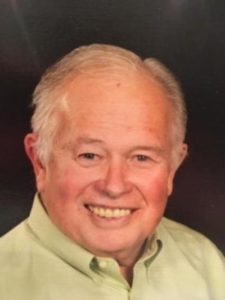Mark Jackson: How I Became an Oxfordian
—————————————————————
 I became an Oxfordian in 1990 by accident, due to the Frontline film “The Shakespeare Mystery.” I borrowed a VHS of the episode from the library and made 10 copies for friends. I bought a first edition English copy of Looney. I read Ogburn and Samuel Clemens. I was ON BOARD. It bit me like a bug!
I became an Oxfordian in 1990 by accident, due to the Frontline film “The Shakespeare Mystery.” I borrowed a VHS of the episode from the library and made 10 copies for friends. I bought a first edition English copy of Looney. I read Ogburn and Samuel Clemens. I was ON BOARD. It bit me like a bug!
A friend pointed me to Oregon’s De Vere Studies conference. I called the registrar at Concordia University who mentioned it was run by Professor Dan Wright. I thought, “A professor! He has a Ph.D.” I’m impressed by anyone who puts enough work into a subject to get a doctorate. I asked, “Would it be possible to…talk with him,” like I was asking for an audience with the Pope. They put me through to Dan and I mentioned the possibility of me, knowing nothing, attending his conference. Dan was so cordial, so inviting! “Of course you can,” he said. And they were wonderful conferences; I went to them all.
When Dan solicited money to pay for a window for Edward de Vere in Westminster Abbey, I didn’t have much money, but I gave $100. I realized then that I was seriously into it. And when a conference speaker mentioned a book, I got it. I have some peripheral, fascinating books.
Looking for someone in Seattle to talk with, I called six people in English literature at the University of Washington. I had sometimes protracted, sometimes clipped discussions. The attitude was, “Don’t open THAT door.” I asked the most sympathetic professor, “Is there no one here who believes in this thing?” There was an audible pause before he admitted, “There is one guy, Ed Crane.” He drew out the man’s name as though he had just stepped in dog doo. And he did not say, ‘Professor Crane,’ he said “Ed.” I asked, “Does he work in the English Department.” He laughed, “No, no, he works in the math department,” as though that explained it.
Maybe it did. I had to go to the math department to find someone open to the question, who could evaluate facts using an analytical, evidence-based approach! Dr. Crane and I had an animated discussion over lunch. He believed Shakespeare was Edward de Vere and said the people in the English Department had their heads in the sand. Authorship was not a cause célèbre for him, though. He did not go to conferences, but he sent me an email with quotations from Tolstoy and Planck about how hard it is for people to change their minds.
Exploring the authorship question has been one of the most satisfying experiences of my life. I am sorry it’s over for me. It was thrilling to be around people who are smart. I trust the next generation of Shakespeare lovers will be willing to take an historic look, before and beyond the myth. To ask, what are the facts, what are the lies? This question isn’t going away.
Membership dues cover only a fraction of our budget, including all our research, preservation and programming. Please support the SOF by making a gift today!
Blue Boar Tavern: Wassail Q&A
Tuesday Dec. 17, 8pm E / 5pm P
Sign up below for event invites!
